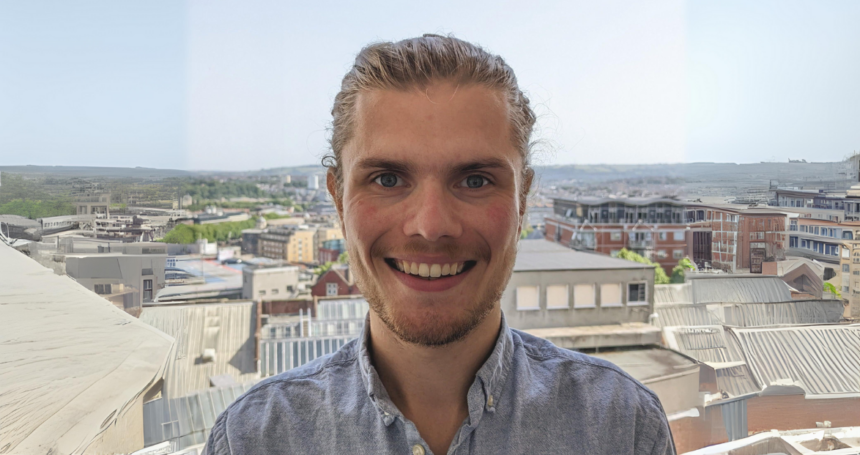Investing in the Future of Respiratory Medicine: Announcing Zinc’s Pre-Seed Investment in Microsol

Zinc is excited to be leading the pre-seed investment into Microsol, a Bristol-based startup revolutionising the development of inhaled and nasal drug products. This funding round will help propel founder Dr Dan Hardy and the team on their mission to harness Microsol’s powerful proprietary combination of advanced aerosol formulation development and computational pharmaceutics modelling, to enable more efficient and effective drug delivery for respiratory illnesses.
The challenge
The application of new technologies – such as artificial intelligence and machine learning, computational modelling, synthetic biology, gene editing and bioinformatics – to drug discovery, means the pace of innovation in the development of novel therapeutics is continuing to accelerate. However, the development cycles for inhaled and nasal drug products remain long and complex, facing unique R&D challenges, particularly around aerosol kinetics, distributions and stability, and especially in the delivery of novel medicines including biopharmaceuticals.
Therefore development of optimal formulations is particularly critical for inhaled drugs. The formulation is responsible for ensuring the drug is delivered to the right part of the lung, in the right form. Traditional formulation R&D processes for inhaled medicines involve a top-down approach, analysing plumes of medicine from inhaler devices. This leads to an experientially-led development process and is incredibly slow and inefficient, not optimised for data collection, and very expensive. It requires a lot of time, money and resources spent in the lab, particularly in the early stages of R&D. It is a costly, industry-wide bottleneck.
Microsol’s novel approach
Microsol’s technology platform brings together advanced hardware innovation with unique measurement and computational simulation capabilities that enable the screening and tuning of formulations in silico, at single particle scale. This approach enables pharmaceutical companies to save money, resources and vastly expedite their inhaled drug R&D cycles. Microsol’s approach is formulation and device agnostic, opening up a huge global market opportunity.
Founder Dr Dan Hardy earned his PhD in aerosol science, specialising in single-particle measurements and simulations. He has also taught at the EPSRC Centre for Doctoral Training in Aerosol Science – a cross-disciplinary training centre comprising eight leading universities and over 75 partners – and has built an unparalleled network of academic and industry partners in this space. He couldn’t be better placed to build and scale a venture tackling this huge challenge for the pharmaceutical sector.
A huge opportunity for innovation
With the evolution of new categories of biopharmaceutical medicines (such as mRNA and monoclonal antibodies) innovation is accelerating and drugs are becoming more sophisticated – but also more expensive to develop and deliver. These biologics are a class of drugs produced from life forms and living cells, and as such are usually made up of large, complex molecules. Their size and shape can affect their stability, efficacy, and how the body processes them, which means therapies must usually be injected or infused (rather than inhaled or administered orally) to prevent them from breaking down in the body.
Microsol’s enabling technology presents a significant opportunity for this class of medicines to be delivered in more effective, cost-efficient and convenient ways. It also provides a new way to approach some critical and complex healthcare challenges. For example, the opportunity to tackle antimicrobial resistance by delivering antibiotics for lung infections directly to the lung, rather than via orally ingested tablets.
In parallel, regulators are compelling pharmaceutical companies and care providers to transition to using less environmentally harmful propellants. The propellant used in metered dose inhalers for example is 1,500x more damaging to the environment than CO2 – with inhaler emissions alone accounting for approximately 3% of the NHS’s total carbon footprint. Microsol’s technical innovation is expediting the transition to new, low global warming potential propellants to deliver inhaled therapies in a less environmentally harmful way.
With these driving forces at play, now is the time for innovation and investment in this space.
The road to global impact
Microsol has already made incredibly impressive progress on its mission, with paying pharma customers in the UK and US, key R&D partnerships in place, and a growing IP portfolio. Dan has also built a world-class founding team of brilliant scientists: Microsol’s computational work is led by Toria Legh-Land, who holds a PhD in respiratory drug delivery, and leading aerosol researcher Dr Allen Haddrell brings over 20 years expertise in pharmaceutical and bioaerosol applications.
This pre-seed round will enable Dan to grow the team’s scientific and technical capabilities with key new hires, while continuing to build out their proprietary formulations, and productise their technology platform for customers and partners.
We couldn’t be more excited to partner with Dan and the Microsol team through this next phase of their growth. This investment sits within Zinc’s thesis to build deep tech and cutting edge scientific innovation to solve the most critical challenges facing the health of people and the planet. We know that with the right support, pathways, network and mentorship, scientists can become extremely effective and inspiring leaders of high-impact commercial ventures – and Dan is a great example of a scientist embodying this journey.
~~~~~~~~~~~~~~~~~~~~~~~~~~~~~~~~~~~~~~~~~~~~~~~~~~~~~~~~~~~~~~~
Building and commercialising science-for-impact: If you would like to follow in the footsteps of Dan to build the next world-changing innovation in health, environment or climate, apply for pre-seed investment and venture building support from Zinc today: https://www.zinc.vc/
Join the Zinc community
Stay up to date with all Zinc updates and future posts as part of our fast growing community.
Featured Resources
Zinc Impact Report 2024
Zinc’s mission is to make the UK the best place to successfully start a venture which can have a massive impact on the health of people and the planet.
Increasingly, we are building deeper science ventures that serve global, industrial customers in environment and health, giving access to impact at a global scale.
Our 2024 Impact Report explores the challenges that need to be tackled to empower and enable talented founders from around the world to solve critical health and environmental challenges at scale, from here in the UK.
This report showcases success stories from the Zinc portfolio, and highlights how Zinc – and our growing community of hundreds of Founders, Fellows, Coaches, Partners and Funders – are working together to build a world-leading “Science-for-Impact” ecosystem for inception stage ventures in health and environment.
Impact Report 2023
We started Zinc with the hypothesis that missions are an effective way to attract highly ambitious, talented and experienced groups of innovators, who might not recognise themselves as “classic entrepreneurs” but are ready and able to start a new commercial and successful venture to tackle some of our most pressing societal issues.
The world has overcome the sorts of challenges we face today when it has adopted a mission-based approach to the biggest problems and brought together world-class talent to invent and innovate, e.g: NASA and landing a man on the moon, the LSE blueprinting the British welfare state, or the Gates Foundation aiming to eradicate diseases.
On this basis and assumption, we designed Zinc as a new mission-based Venture Builder — a place where global talent, ‘impact makers’, can join to experiment and develop new solutions to our most pressing societal issues.

